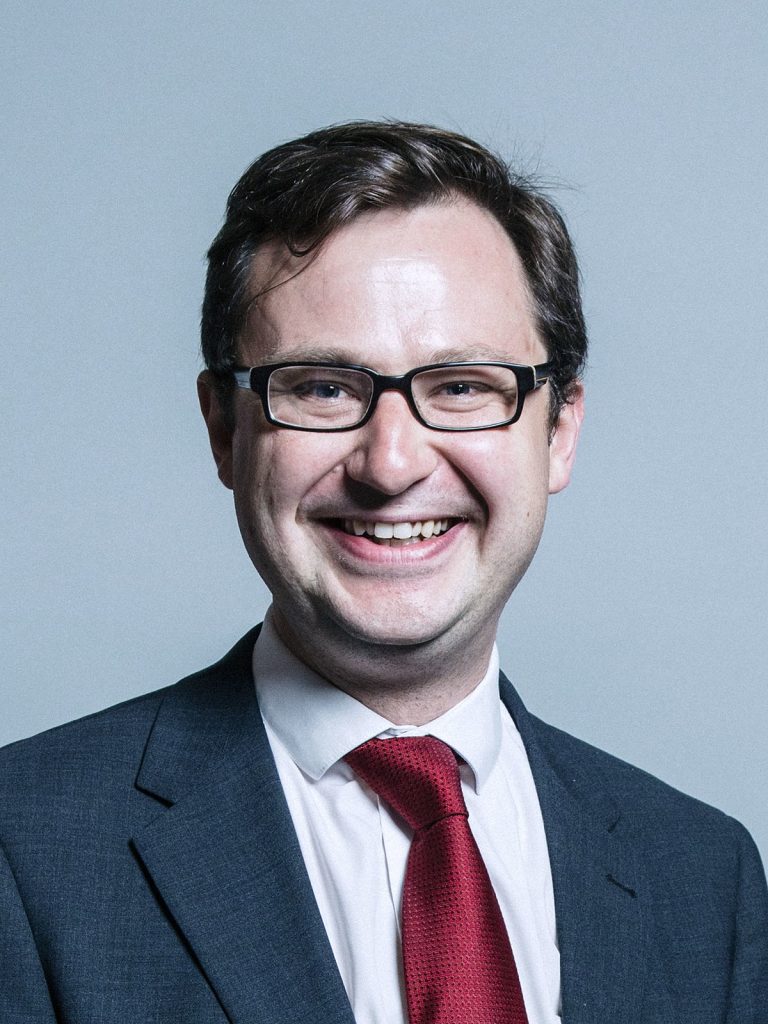Alex Norris – 2021 Speech on the Covid-19 Vaccine
The speech made by Alex Norris, the Labour MP for Nottingham North, in the House of Commons on 4 February 2021.
Thank you, Madam Deputy Speaker. I am grateful to the Minister for advance sight of his statement and for his kind words about my birthday. Of course, the gladdest tidings is the news that more than 10 million people have received their first dose. Once again, our incredible national health service has delivered for us. I visited a site in Nottingham earlier in the week, and that team of the NHS, armed forces, local councils, volunteers and many more coming together was an uplifting and incredible sight.
We welcome today’s announcement about the new clinical trial. It is clear that we will live with covid-19 and its mutations for a long time, so this is the best way to get out in front of it. We were glad also to hear the study results regarding the Oxford-AstraZeneca vaccine reducing transmission and maintaining protection over 12 weeks. As the Minister said, it is clear that vaccines are the way out of this pandemic. Daily cases are beginning to fall, but it is vital that the Government do not repeat previous mistakes and take their foot off the gas just as things look to be getting better. Could the Minister update us on whether he expects similar trial data to be published for the Pfizer vaccine?
The Government seem to be on track to deliver on their promise of vaccinating the top four Joint Committee on Vaccination and Immunisation priority groups by the middle of this month. We really welcome that, and I commend the Minister’s work in that regard, but in a spirit of co-operation, I need to press him on a couple of points about what comes next.
First, regarding data, we are all concerned about the reports of lagging take-up among black, Asian and minority ethnic communities, as well as poorer communities, and I associate myself with the comments about the brilliant work done by our colleagues to fight that. We know that these groups have been worst affected by the pandemic, and we need them to take up the vaccine, but I am conscious that much of what we hear is based on anecdotal stories, rather than hard data at a community level, split by ethnicity. Can the Minister say what data he has on that and when colleagues can get council ward-level data, so that we can all be part of the effort to drive up take-up? As the first phase is coming to an end, can the Minister update us on the number of care home staff who have received their first dose and perhaps what the plan is to encourage those who have not done so to take it up on reflection?
When we get to the beginning of April, those who have had their first dose will be expecting and needing their second one. Can the Minister give an assurance that there will be enough supply to ensure that everyone who is due their second dose gets it, as well as, obviously, to manage those who are due their first? The Foreign Secretary would not offer that commitment on behalf of the Government recently. I hope the Vaccine Minister will be able to.
Colleagues have raised with me the fact that constituents who have received a national letter and called 119 to book are not routinely being offered local primary care network-based options. Can the Minister confirm that that should not be the case and that he would welcome hearing examples of where that is happening so that we can change it?
The Opposition fully supported the Government in prioritising those at greatest risk of dying—those in the first four categories—but as we move to categories 5 to 9, it is reasonable to ask the JCVI about including key workers. Data has shown that those who work closely with others and are regularly exposed to covid-19 have higher death rates than the rest of the population. By prioritising those workers alongside the over-50s and 60s, and people with underlying health conditions, we can reduce transmission further, protect more people and keep the vital services that they provide running smoothly, which includes reopening schools. Putting the politics of this to one side, we raised this suggestion over a week ago now. Will the Minister say whether he has had those conversations with the JCVI, or whether he will at least commit to asking it to look at how that suggestion might work?
It is HIV Testing Week. Those living with HIV are in category 6. If their doctor knows their HIV status, they will have their opportunity as planned. However, some choose, perfectly legitimately and for some profoundly important reasons, to access their healthcare through other means, such as an HIV clinic. Their doctor might therefore not know their status and they may well be missed. In this specific case, will the Minister commit to looking at a possible workaround? Allowing HIV clinics to connect those individuals directly would be one way, but we would support any effective way of doing that.
Finally, given that it is World Cancer Day, what consideration has the Minister given to vaccinating household members of the clinically extremely vulnerable, to give another layer of protection to blood cancer patients and other CEV people, an argument strongly supported by the reports that transmission is reduced by these vaccinations?
To conclude, this programme really is the light at the end of the tunnel. Our NHS has delivered, and we must support it to continue to do so by making the right policy decisions.

